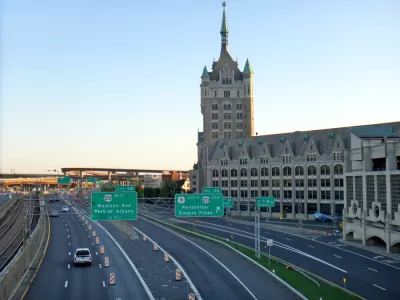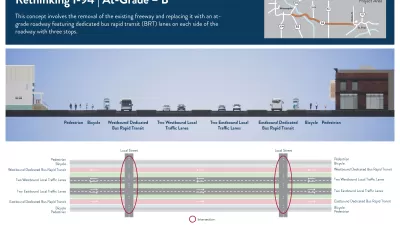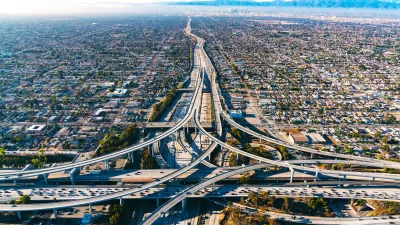Thanks to decades of activism and newly available federal funding, state and local governments are starting to understand the negative impacts of highway construction and working to reverse the effects on cities around the nation.

Writing in the Congress for New Urbanism Public Square blog, Lauren Mayer outlines freeway removal projects around the nation that are being aided by federal support, thanks to the federal government’s “acknowledgement of historic harms with financing through the federal Reconnecting Communities program.”
Mayer focuses on Interstate 787 in Albany; State Highway 55 in Minneapolis; and US Route 244 in Youngstown, Ohio. After decades of fierce highway building, New York is seeing a major turnaround in policy. “With successful removals in Rochester and New York City and more in progress in Syracuse and Buffalo, the state government in New York is working to heal the divisions created when these roads tore apart the communities by reconnecting the historically underinvested neighborhoods and improving economic vitality.” Each project is the result of years of ongoing work and coalition-building by local activists and officials.
Mayer concludes by highlighting the importance of collaboration across agencies and levels of government. “Building coalitions within government and the community can help these long-term and potentially expensive projects build and maintain momentum throughout the process.”
FULL STORY: What does government support for highway removal look like?

Maui's Vacation Rental Debate Turns Ugly
Verbal attacks, misinformation campaigns and fistfights plague a high-stakes debate to convert thousands of vacation rentals into long-term housing.

Planetizen Federal Action Tracker
A weekly monitor of how Trump’s orders and actions are impacting planners and planning in America.

In Urban Planning, AI Prompting Could be the New Design Thinking
Creativity has long been key to great urban design. What if we see AI as our new creative partner?

King County Supportive Housing Program Offers Hope for Unhoused Residents
The county is taking a ‘Housing First’ approach that prioritizes getting people into housing, then offering wraparound supportive services.

Researchers Use AI to Get Clearer Picture of US Housing
Analysts are using artificial intelligence to supercharge their research by allowing them to comb through data faster. Though these AI tools can be error prone, they save time and housing researchers are optimistic about the future.

Making Shared Micromobility More Inclusive
Cities and shared mobility system operators can do more to include people with disabilities in planning and operations, per a new report.
Urban Design for Planners 1: Software Tools
This six-course series explores essential urban design concepts using open source software and equips planners with the tools they need to participate fully in the urban design process.
Planning for Universal Design
Learn the tools for implementing Universal Design in planning regulations.
planning NEXT
Appalachian Highlands Housing Partners
Mpact (founded as Rail~Volution)
City of Camden Redevelopment Agency
City of Astoria
City of Portland
City of Laramie





























